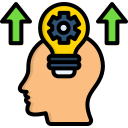
Benefits of Contributing to Open Source Projects
Open source projects have revolutionized the way software and technology are developed and shared around the world. By allowing anyone to view, modify, and distribute code, open source fosters a collaborative environment that benefits individuals, organizations, and communities. Contributing to these projects offers a variety of advantages, from skill development to global networking, making it an invaluable experience for developers and enthusiasts. This page explores the key benefits of getting involved with open source, providing insights into how your contributions can impact both your personal and professional journey.
Skill Enhancement and Practical Learning
Exposure to Real-World Codebases
Working on open source projects means collaborating on large, often complex codebases that are utilized by users worldwide. This exposes contributors to professional coding standards, efficient design patterns, and comprehensive documentation. Unlike classroom assignments, open source code is often peer-reviewed and maintained by experienced developers, offering valuable feedback and guidance. The process of navigating and understanding these codebases hones the ability to quickly comprehend and adapt to new technologies—a critical skill in today’s fast-evolving tech landscape.
Mastering Version Control Tools
Open source projects primarily rely on version control systems like Git. Contributors learn how to manage branches, resolve conflicts, and maintain a clean commit history. These are essential skills for any software development role. Regular collaborative coding reinforces best practices, such as writing meaningful commit messages and rebasing, and instills confidence in managing code collaboratively. Contributors are also introduced to workflows like pull requests and code reviews, better preparing them for professional environments.
Accelerated Problem-Solving Growth
Open source exposes contributors to a variety of problems that may not be covered in formal education. Encountering bugs, addressing feature requests, or improving documentation demands creative and analytical thinking. Contributors frequently engage with unfamiliar systems, pushing them to research solutions and experiment with new approaches. This iterative learning process develops strong problem-solving skills, making contributors more capable and versatile in tackling complex challenges in any context.
Building a Professional Portfolio
Showcasing Verified Work to Employers
Unlike conventional resumes or project summaries, open source contributions provide verifiable proof of your skills. Hiring managers and recruiters can directly examine your code, read your commit history, and see how you interact with other contributors. This transparency adds credibility to your profile and demonstrates your willingness to engage with real software development processes. As a result, your open source activity becomes a powerful tool during job applications, enabling you to stand out from other candidates.
Demonstrating a Range of Skills and Technologies
Participating in open source allows you to work on various projects that may utilize different programming languages, frameworks, and tools. This diversity enables you to build a portfolio that highlights your adaptability and eagerness to learn new skills. Whether you contribute to documentation, UI/UX, or backend code, you can publicly display your versatility and depth. This breadth of experience is highly attractive to employers looking for well-rounded team members.
Earning Credibility Through Community Recognition
As you make meaningful contributions, maintainers and fellow developers may acknowledge your work in release notes, documentation, or credits. Such recognition not only validates your expertise but also signals to others that you are an active, valued member of the technology community. Over time, this recognition accumulates into a reputation that follows you across networks and career opportunities, reinforcing your professional standing.


Collaborating with Diverse Contributors
Open source projects gather contributors from all over the world, each bringing unique experiences and perspectives. By working together on shared objectives, you have the opportunity to learn from peers outside your immediate environment, fostering cultural awareness and adaptability. These collaborations often lead to deeper understanding of both technical and interpersonal dynamics, enhancing your effectiveness as a communicator in distributed teams.

Forming Long-lasting Professional Relationships
Regular participation in open source communities leads to the formation of strong professional bonds. Contributors often stay in touch, provide mentorship, or collaborate on future projects. These relationships can turn into valuable networks of support, potentially leading to referrals, references, or job opportunities. The collaborative nature of open source ensures that you are constantly engaging with motivated, like-minded individuals who encourage mutual growth.

Learning from Experienced Mentors
Many open source projects are guided by seasoned maintainers and professional developers who offer guidance to newcomers. By interacting with these mentors, you gain practical advice on everything from best coding practices to navigating career choices. The informal mentorship available in open source communities is instrumental in accelerating your development, helping you avoid common pitfalls and refine your craft more quickly.
Boosting Confidence and Motivation
For many developers, the prospect of sharing their code for public scrutiny can be daunting. Open source encourages contributors to break this barrier by creating a welcoming environment for learning and improvement. As you receive constructive feedback from reviewers and users, you realize that mistakes are part of the process. Gradually, you become more comfortable sharing your work, which increases your self-assurance and willingness to accept challenges.

Gaining Recognition and Opportunities
01
Expanding Your Professional Visibility
Frequent contributors to popular projects often attract the attention of leading companies and influential individuals within the tech ecosystem. Your name associated with respected repositories increases your visibility among industry peers. This enhanced presence can result in invitations to conferences, speaking engagements, or even direct approaches from organizations seeking your expertise.
02
Achieving Leadership Roles in Projects
As you continue to contribute, you might be entrusted with higher responsibilities such as becoming a project maintainer or release manager. Leadership roles in open source not only look impressive on your professional profile, but they also develop your ability to organize, guide, and mentor teams. These experiences strongly demonstrate your organizational and interpersonal skills to current or potential employers.
03
Accessing Unique Career Opportunities
Many companies actively scout for open source enthusiasts to join their teams, recognizing the initiative and resourcefulness needed for active participation. Open source contributors often find themselves receiving job offers, freelance contracts, or collaboration proposals from organizations that value open, collaborative mindsets. The open nature of your work acts as a dynamic portfolio, significantly streamlining the hiring process and creating new pathways for professional advancement.
Giving Back to the Community
By contributing fixes, features, or documentation, you have a direct role in improving the quality and reliability of the software tools you and thousands of others rely on. Your efforts help create more stable, secure, and user-friendly products. This active participation ensures that open source software continues to evolve and adapt, benefiting the wider community.


Articulating Ideas Clearly
Writing concise commit messages, opening detailed pull requests, and engaging in thoughtful discussions require clarity and precision. Open source environments challenge contributors to convey their thoughts and suggestions in ways that are understandable to individuals with different backgrounds and experience levels. Mastering this ability to communicate effectively is crucial in both technical and non-technical professional contexts.

Navigating Constructive Debates
Technical disagreements are a natural part of collaborative projects. Open source teaches you how to engage in respectful debates, separate personal perspectives from collective project goals, and reach consensus through dialogue. These experiences foster maturity, empathy, and compromise—qualities that are highly valuable in any workplace.

Coordinating Across Time Zones and Cultures
Many open source teams are globally distributed, meaning contributors often work asynchronously and come from different cultural backgrounds. Learning how to coordinate efforts, schedule meetings, and resolve misunderstandings remotely is an essential modern skill. The ability to collaborate effectively across borders makes you adaptable and resourceful, ready for the demands of international workplaces.
